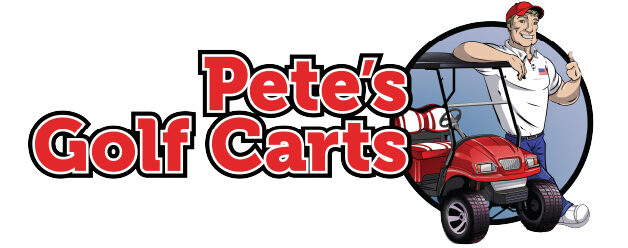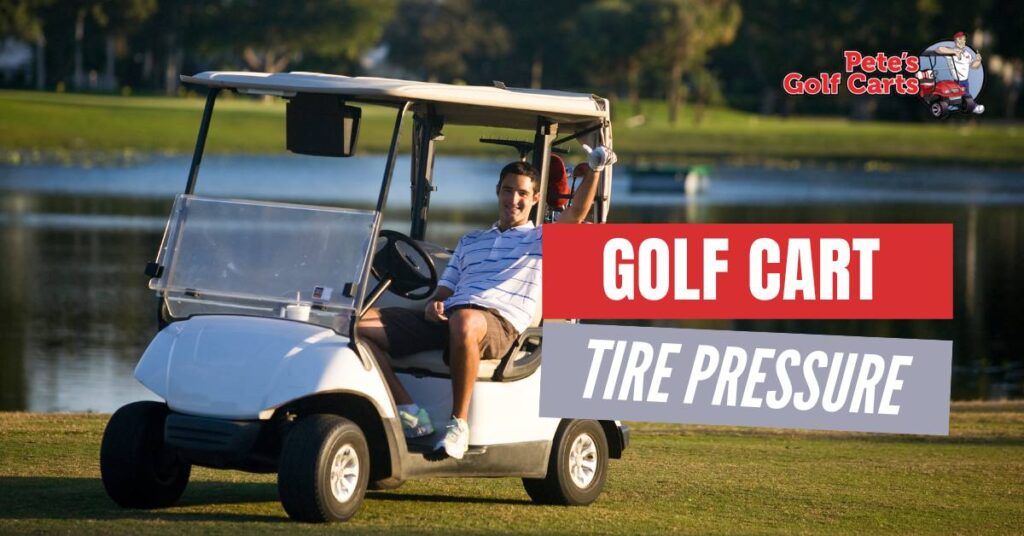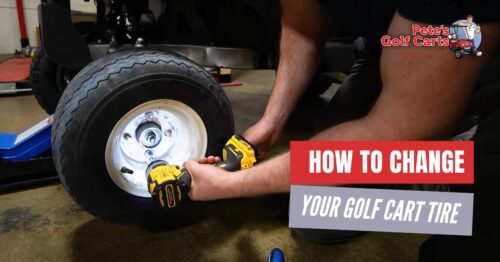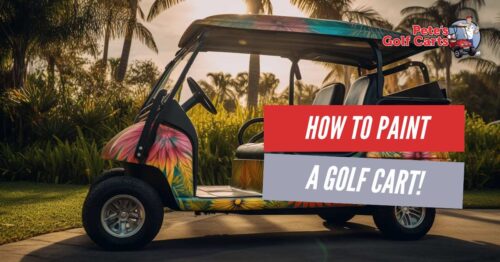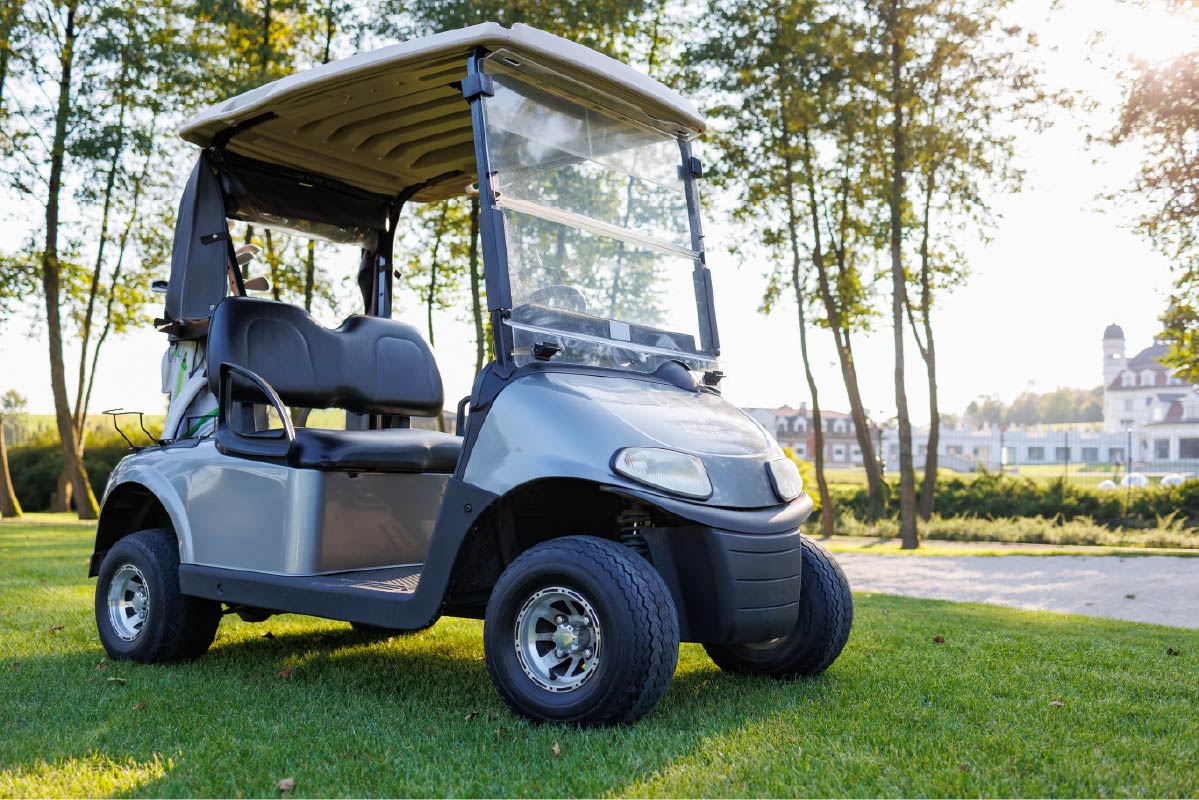1. Finding the Right PSI
“PSI” stands for “pounds per square inch,” and it tells you how much air your tire should hold. You don’t have to guess—the recommended PSI for your specific cart is printed right on the sidewall of your golf cart tires.
Each model of cart and type of tire can have slightly different needs. Plus, your optimal pressure might change if you’re hauling extra passengers or gear. Expect to see golf cart tire pressure around the 15-25 PSI range for most golf cart tires.
2. Why Tire Pressure Fluctuates
Tires aren’t static – they respond to the world around them! Here’s the deal:
- Temperature: Hot weather expands air, increasing pressure. Cold weather does the opposite.
- Load: More weight on the cart equals more pressure needed to keep things rolling smoothly.
- Terrain: Bumpy rides put extra strain on your tires, impacting their pressure.
3. Consequences of Incorrect Tire Pressure
- Overinflation: You’ll feel every bump and pebble and reduce your tires’ traction on the course (not ideal for tight turns). An overfilled tire also has a slightly (very slightly) higher risk of a blowout.
- Underinflation: Sluggish handling, wasted battery power, uneven tire wear, and potential damage to your wheels are all consequences of low tire pressure.
4. Tools for Checking and Adjusting Tire Pressure
Two key items you’ll need:
- Tire pressure gauge: A simple one will do the trick. Get this at any auto supply store.
- Air source: Air compressors at gas stations work, or you can invest in a portable tire inflator for home use.
5. Types of Golf Cart Tires & Typical Tire Pressure Ranges
- Street/Pavement Tires: Designed for smooth, paved surfaces. They generally require higher pressure for optimal performance. Typical range: 20-25 PSI
- Standard-Sized Golf Cart Tires: This is a common size for many golf carts, check the sidewall for the most accurate PSI.Typical range: Around 22 PSI
- Turf Golf Cart Tires: Prioritize a smooth ride on the fairway, generally operating at even lower pressures than off-road tires. Typical range: 10-15 PSI
- Off-Road Golf Cart Tires: Designed for varied terrain and heavier loads, they often operate at a lower pressure range. Typical range: 12-15 PSI (adjust based on terrain softness)
6. The Benefits of Optimized Golf Cart Tire Pressure
Here’s why you should care about keeping those tires perfectly inflated:
- Comfy ride: It makes a world of difference on the course or around the neighborhood.
- Extended tire life: Why replace your golf cart tires sooner than necessary?
- Better battery range: Less resistance means your battery doesn’t need to work as hard.
- Enhanced safety: Good tire pressure equals better control and handling.
Wrapping it Up
Optimal tire pressure is one of the simplest, most effective ways to take care of your golf cart. Reference your cart’s manual or the tire sidewall for the specific recommended PSI and get familiar with using a pressure gauge. Your cart (and your backside!) will thank you.
Extra Notes:
- Consider specialty tires based on your needs – turf tires offer a particularly smooth ride on fairways!
FAQS
- Seriously, how often do I have to check my tire pressure? At the bare minimum, once a month should do it. But if you’re a golf course warrior, live in a place with crazy weather swings, or like to go off-roading, check those babies more often (like, every couple of weeks).
- Okay, can I break things by overinflating my tires? You won’t likely blow them up cartoon-style, but it’ll make for a super bumpy ride, less control, and might even wear them out faster. Stick close to the recommended pressure for the best experience.
- What’s the big deal if the pressure is too low? Your cart will feel sluggish, drain the battery faster than you can say “Fore!”, wear the tires funny, and those fancy rims could get hurt. Not worth the hassle!
- Do I need some special tool to check my golf cart tire pressure? Nope! A regular old tire pressure gauge from any auto parts store will do the trick.
- Okay, I’m lost. Where do I find this magical PSI number? Check the side of your tires – the manufacturer prints the recommended pressure right there! Your golf cart’s owner’s manual should have it as well.



